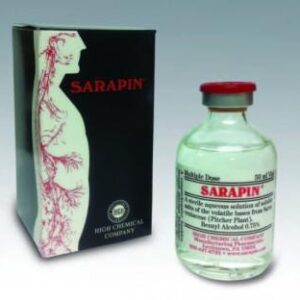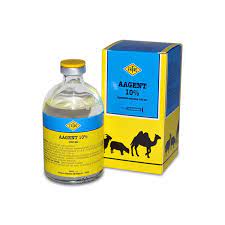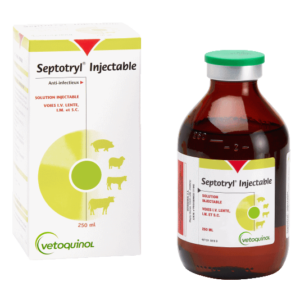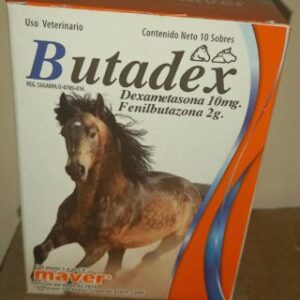Joint & Mobility Intramuscular (IM) Injections for Horses: An Overview
When we talk about Joint & Mobility IM (intramuscular) injections for horses. We’re referring to specialized veterinary treatments designed to support and enhance the health of a horse’s joints, connective tissues, and overall mobility. These injections are commonly used to manage joint-related issues, such as arthritis, inflammation, and stiffness, particularly in performance or aging horses. Administer directly into the muscle, these products offer systemic support and can help improve a horse’s movement, reduce pain, and slow down the progression of degenerative joint conditions.
Why Use IM Injections for Joint Health?
Unlike oral supplements, intramuscular injections allow for faster absorption and more direct delivery of active ingredients into the bloodstream. This can lead to quicker results, especially in horses experiencing moderate to severe joint discomfort. These treatments are often recommended by veterinarians as part of a larger joint health management plan that may also include oral supplements, physical therapy, exercise modifications, and dietary changes.
Key Benefits of Joint & Mobility IM Products:
-
Enhanced Joint Lubrication – Helps reduce friction between joint surfaces.
-
Reduced Inflammation – Decreases swelling and discomfort within the joints.
-
Cartilage Protection & Repair – Supports regeneration and slows breakdown of joint cartilage.
-
Pain Relief – Alleviates discomfort associated with joint strain or arthritis.
-
Improved Flexibility & Movement – Helps horses move more freely and comfortably.
Common Ingredients Found in IM Joint Therapies:
-
Polysulfated Glycosaminoglycans (PSGAGs):
Found in products like Adequan®, PSGAGs are used to repair and protect cartilage, inhibit harmful enzymes that degrade joint tissue, and increase joint fluid production. They are among the most researched and reliable injectable joint therapies for horses. -
Hyaluronic Acid (HA):
HA is naturally found in joint fluid and cartilage. When administered via injection, it helps lubricate the joint and reduce inflammation. Legend® is a common HA-based product used either intravenously or intramuscularly. -
Pentosan Polysulfate:
This semi-synthetic compound has anti-inflammatory and cartilage-protective properties. Though not FDA-approved in the U.S. for equine use, it is widely used off-label and in countries like Australia. -
Glucosamine & Chondroitin Sulfate:
These compounds support the repair and regeneration of cartilage and may help manage chronic joint conditions. While more commonly found in oral supplements, they may be included in some compounded injectable products. -
MSM (Methylsulfonylmethane):
A sulfur-containing compound that helps reduce inflammation and supports collagen production, essential for maintaining healthy connective tissue. -
Vitamin C (Ascorbic Acid):
Known for its antioxidant properties, Vitamin C helps reduce oxidative stress and supports the synthesis of collagen, which is important for tendon and ligament health.
Commonly Used IM Products:
-
Adequan® IM (PSGAG):
One of the most popular and extensively studied injectable joint therapies. It is typically administer every 4 days for 7 doses, then followed by maintenance injections depending on the horse’s condition and workload. -
Legend® (Hyaluronic Acid):
Used to reduce joint inflammation and improve joint function, especially in horses showing early signs of joint discomfort. -
Compounded Pentosan:
Often used in countries where it is approve, and increasingly use off-label in the U.S. This treatment supports joint health and can be given weekly or biweekly.
When Are IM Joint Injections Recommend?
These injections are commonly use in:
-
Performance horses under intense physical stress (e.g., show jumpers, racehorses, eventers).
-
Senior horses showing signs of arthritis or decreased mobility.
-
Horses recovering from orthopedic injuries or joint surgeries.
-
Horses with poor response to oral joint supplements or other treatments.
Veterinary Supervision Is Essential
Because these injections must be administer properly into the muscle and may carry risks such as injection site reactions or systemic side effects, they should always be give by a license veterinarian or under their direct guidance. The appropriate product, dosage, and treatment schedule depend on the horse’s age, weight, workload, and overall health status.
Conclusion
Joint & Mobility IM injections are an effective way to support the health and performance of horses dealing with joint stress or chronic degenerative issues. They offer a powerful tool in the management of equine joint health, particularly when used as part of a comprehensive wellness plan. By improving joint lubrication, reducing inflammation, and supporting cartilage health, these injections can help keep horses comfortable, active, and performing at their best.






Reviews
There are no reviews yet.